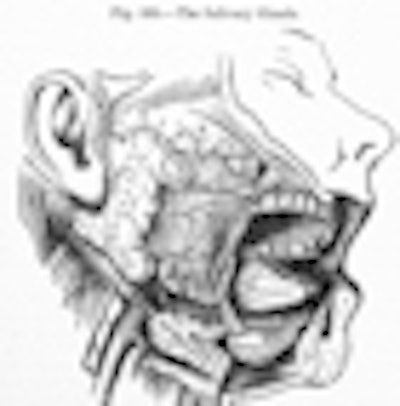
The National Institute of Dental and Craniofacial Research, part of the National Institutes of Health (NIH), has awarded a five-year, $1.25 million grant to Brian L. Schmidt, D.D.S., M.D., Ph.D., a professor of oral and maxillofacial surgery at the New York University (NYU) College of Dentistry, and Markus Hardt, Ph.D., a protein chemist at the Boston Biomedical Research Institute, to study the molecular mechanisms of oral cancer pain.
The ultimate goal of the research is to spur the development of more sophisticated analgesics to alleviate the pain that is so often manifested in patients with oral cancer, the researchers noted in a press release.
"Oral cancer is a logical place to start when seeking clues about cancer pain," Dr. Schmidt said. "Pain is the most common presenting symptom associated with this cancer. Secondly, oral cancer is painful at the primary site, not just at sites of metastasis as is the case in almost all other cancers. Lastly, the primary site of the oral cancer is readily accessible, enabling us to directly sample the cancer microenvironment."
Dr. Schmidt hypothesizes that the cause of oral cancer pain and pain generated by other cancers may be produced along similar molecular pathways in the body. Throughout the study he will enroll oral cancer patients in the NIH-funded program through the NYU Bluestone Center for Clinical Research, which he directs. Pain levels reported by patients will be determined using an oral cancer pain questionnaire that Dr. Schmidt created and published in 2004 in the Journal of Pain (November 2004, Vol. 5:9, pp. 505-510). He later validated this questionnaire by measuring patients' pain prior to and after complete removal of the cancer (Journal of Pain, December 2007, Vol. 8:12, pp. 950-953).
When Dr. Schmidt performs surgery on a patient to remove the oral cancer, he will place a microdialysis probe -- a semi-invasive sampling technique -- into the cancer to test it for proteins and peptides that produce cancer pain.
Hardt will then use mass spectrometry to identify which of the sampled molecules correlate with patients' reported pain. The selected protein and peptide pain-producing candidates will be evaluated in Dr. Schmidt's laboratory to confirm their role in producing pain.
According to Dr. Schmidt, the study marks the first use of real-time, intraoperative microdialysis for the analysis of cancer.
"It is hoped that a better understanding of cancer pain mechanisms resulting from the study will lead to the development of new medications that can block those mechanisms," he said.
Copyright © 2010 DrBicuspid.com



















